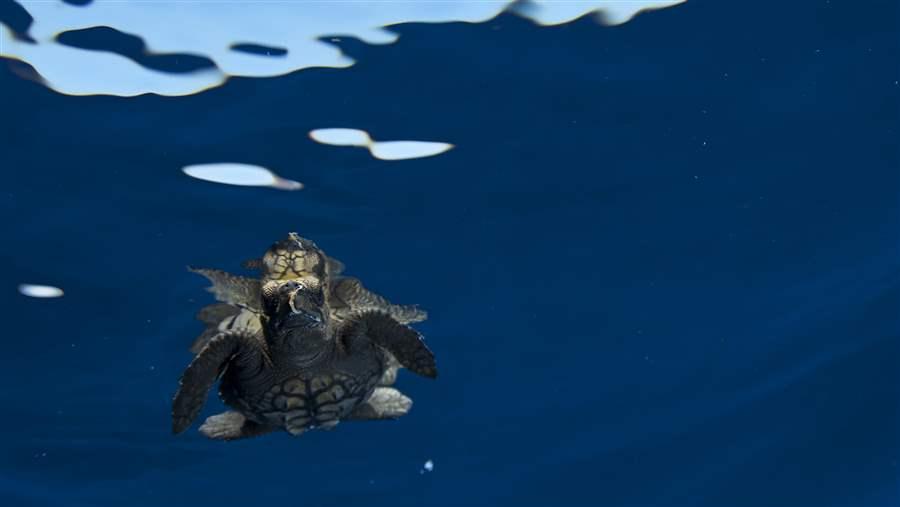Pew Applauds UN Action to Protect the High Seas
Resolution’s passage will launch negotiations for a new international treaty
NEW YORK—The Pew Charitable Trusts praised the United Nations General Assembly’s adoption today, by consensus, of a resolution to launch an intergovernmental conference to negotiate an international treaty that will protect the high seas.
The high seas make up the nearly two-thirds of the world’s ocean in areas beyond national jurisdiction; they extend outside the boundaries of exclusive economic zones and have few rules or coordinated management mechanisms. The treaty, which would be the first of its kind related to marine protections, would address the need for a cohesive global system to coordinate the conservation and sustainable use of marine biodiversity and to account for the impact of human activities on the high seas, including fishing and shipping. It would also pave the way for the creation of marine protected areas (MPAs) and fully protected marine reserves on the high seas, which would protect key areas of biodiversity from extractive and damaging activities.
Liz Karan, director of Pew’s campaign to protect ocean life on the high seas, issued the following statement:
“The United Nations’ action today is recognition of the urgent need to protect biodiversity on the high seas. These ocean areas beyond national jurisdiction provide billions of dollars annually to global fisheries and shipping as well as ecosystem services such as carbon storage, and now the international community has reached agreement that the many diverse species that exist there are worthy of protection.
“After more than 10 years of discussion, it is encouraging that United Nations member states unanimously agreed to move forward in 2018 with negotiations for an international agreement that would fill the gaps in ocean management to ensure protection for marine life on the high seas.
“The international community, including scientists and members of the International Union for Conservation of Nature (IUCN), agrees that at least 30 percent of the world’s ocean should be set aside in MPAs and reserves to achieve a sustainable ocean. Protecting biodiversity on the high seas will be a key component of moving toward this goal.
“We encourage member states to heed the science and sustain the current momentum to finalize the treaty text no later than 2020.”
The Pew Charitable Trusts is driven by the power of knowledge to solve today’s most challenging problems. Learn more at www.pewtrusts.org.








